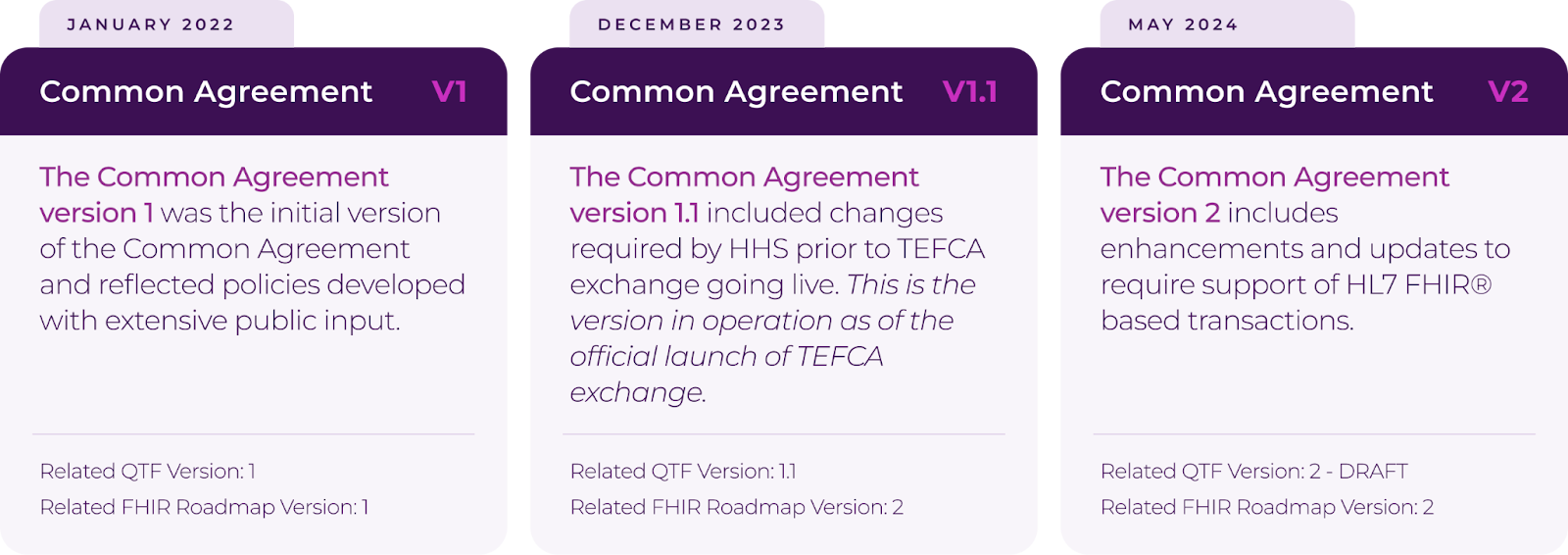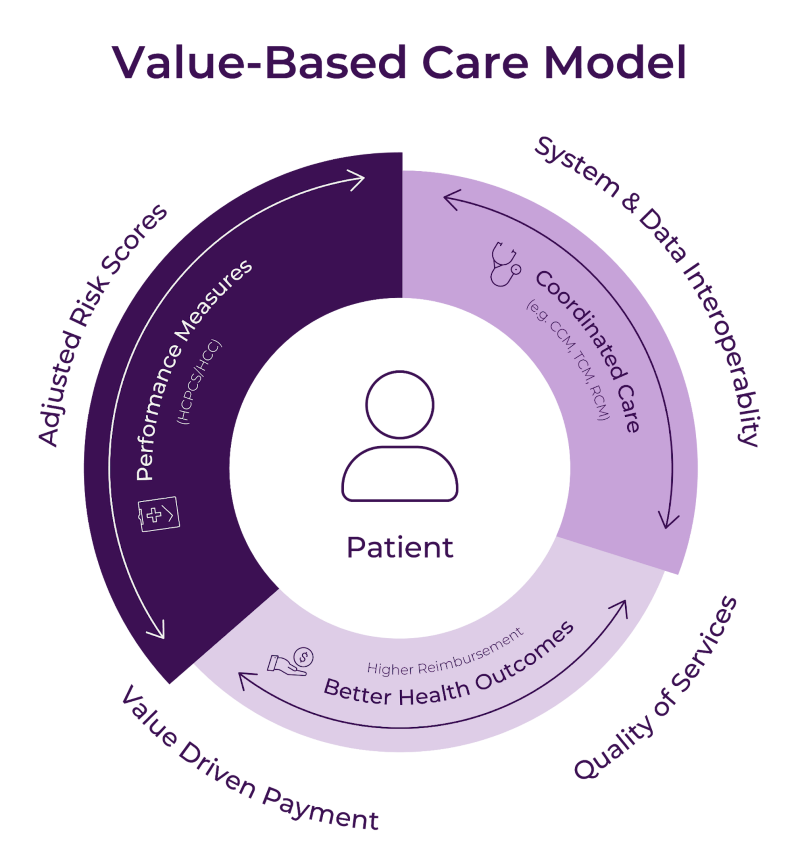How the Latest Updates to Interoperability Laws Impact Value-Based Care Providers

For value-based care providers, interoperability is key to driving better patient outcomes and aligning care with financial performance. The Trusted Exchange Framework and Common Agreement (TEFCA), introduced by the Office of the National Coordinator for Health IT (ONC), is designed to simplify the sharing of electronic health information (EHI) across health networks, and its implications for providers in value-based care models are profound.
Understanding TEFCA
First introduced in January 2018, TEFCA was put in place to achieve three goals:
- Provide terms and conditions for nationwide interoperability
- Simplify connectivity and secure exchange of electronic health information (EHI) with the purpose of allowing organizations to improve patient care and generate healthcare value
- Ensure that patients can access their healthcare data

Let’s look at the two main components of TEFCA: (1) Common Agreement and (2) Trusted Exchange Framework.
- A Common Agreement is signed by each Qualified Health Information Network (QHIN) to define terms for nationwide information sharing and to regulate how information can be securely shared between users in health information networks (HINs). For HINs, the rules and regulations for secure information exchange apply to all users as they are not dictated by a specific network.
- The principles that HINs agree to abide by in regard to widespread information exchange are defined within the Trusted Exchange Framework.
TEFCA and Value-Based Care
In value-based care, success is measured by outcomes, not just services provided. To achieve these outcomes, providers need comprehensive patient data to accurately assess health risks, provide timely interventions, and track long-term results. TEFCA facilitates this by establishing a nationwide framework for secure data sharing between healthcare organizations, ensuring providers can access all relevant clinical data across various systems and networks.
This is crucial in a value-based care model where care coordination and patient outcomes are tied directly to financial incentives. Without complete and timely data, providers risk making incomplete decisions, which could negatively impact both patient outcomes and financial reimbursements.
TEFCA: Enhancing Data Exchange for Providers
TEFCA is a game-changer for how data is exchanged between providers, particularly for those in value-based care contracts where comprehensive data exchange is necessary for success. With TEFCA 2.0, released in April 2024, providers can:
- Access Full Patient Histories: TEFCA allows access to more comprehensive health records, giving providers the complete view they need for risk stratification and accurate care planning.
- Streamline Claims Matching: Providers can better match patient data with claims, eligibility files and real patient data, ensuring they capture the full risk adjustment potential, which is critical for accurate reimbursement.
- Reduce Administrative Burden: The streamlined framework reduces the number of manual connections and systems providers must navigate to obtain data, saving time and resources.
This significantly supports risk-based contracts, where providers take on financial risk for patient outcomes. Without the right data, value-based care providers are at risk of incomplete diagnoses, missed risk adjustment opportunities, and ultimately, revenue loss.

How TEFCA Aligns with Value-Based Care Goals
For providers participating in value-based care, TEFCA enhances care in several ways:
- Comprehensive Data for Better Care Decisions: Providers can use the full scope of patient information to make more informed decisions, leading to better outcomes and higher quality of care.
- Improved Care Coordination: With easier access to complete patient records, multiple providers can collaborate on a patient’s care plan more efficiently, ensuring that care is well-coordinated, reducing redundancies, and preventing gaps.
- More Accurate Risk Adjustments: Access to more data means providers can better identify chronic conditions and risk factors, ensuring they receive appropriate reimbursement for high-risk patients.
Check out our blog on Future-Proofing Risk Adjustment.
TEFCA's Impact on Practice Efficiency
TEFCA doesn’t just help with clinical outcomes; it also boosts operational efficiency. Value-based care providers often spend significant time and resources tracking down patient records across fragmented systems. TEFCA simplifies this by:
- Reducing Time Spent on Data Retrieval: With fewer systems to connect to, providers can quickly access patient data, cutting down the time spent managing records.
- Lowering Administrative Costs: The streamlined data exchange framework reduces the need for manual chart requests and improves overall practice efficiency, saving both time and money.
TEFCA represents a critical step forward in the journey toward nationwide interoperability, particularly for providers engaged in value-based care. With complete, secure access to patient data, value-based care providers can deliver higher-quality care while ensuring they capture the full financial benefits tied to patient outcomes.
Leveraging TEFCA with Credo
Credo’s platform integrates directly with TEFCA-compliant networks, giving value-based care providers unparalleled access to over 65,000 EHRs, HIEs, and clinical endpoints. This means complete, actionable patient insights delivered right when you need them—helping you maximize financial returns from risk adjustment and improve patient care.
Learn how Credo can support your practice in achieving value-based care goals by scheduling a demo today.
Back to blog




